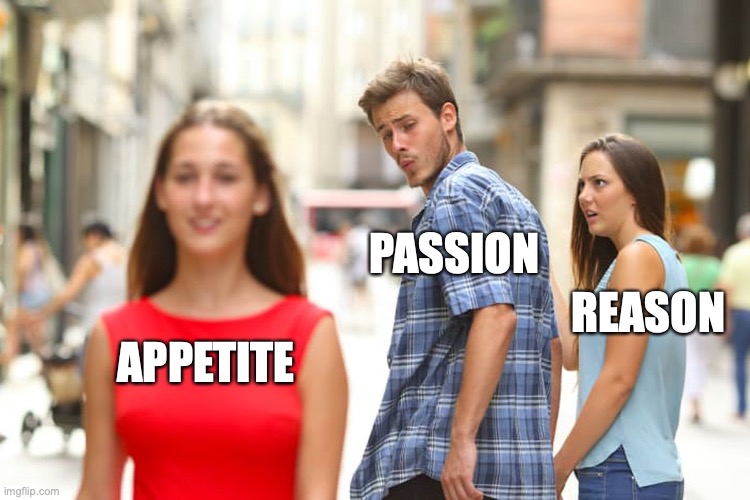All People Are Created Educable, a Vital Oft-Forgotten Tenet of Modern Democracy
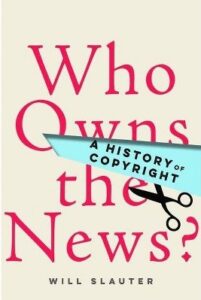
(I have one of my more traditional history posts underway, but wanted to post this separate thought first. Felt timely.)
Many shocking, new ideas shaped the American Experiment and related 18th century democratic ventures; as an historian of the period, I often notice that one of the most fundamental of them, and most shocking to a world which had so long assumed the opposite, often goes unmentioned — indeed sometimes denied — in today’s discussions of democracy: the belief that all people are educable. I think it’s urgent that we bring that principle back into the spotlight if we want to defend democracy from one of its common failure modes: pseudo-populist oligarchy.
Within “all men are created equal” lies the sub-principle that all people, or specifically all enfranchised citizens of a state (which often at the time meant white male adults, though some made it broader, or narrower) that all such people are, if given appropriate educational resources, capable of learning, exercising sound judgment, and acting on said judgment, thus that they all people are equally rational and capable of competent self-governance. This thesis does not assume that all people when adults are equally prepared to participate in government, but that all people when born have the capacity to absorb education if given access to it. Rare intellectual disabilities might make the education process challenging for certain individuals, but (the thesis argues) even then the right support and resources make education possible, and such situations are not the default human state. This is the thesis that all people are fundamentally educable.
Many in the 18th c. who thought democracy was absurd rejected it because they disagreed with this thesis, believing that the majority of people (even of white men) were not educable, i.e. that even with educational resources most people were born incapable of being guided by Reason and making sound political judgments. Those who believed this predicted that government by the people would collapse into absurdity, since it would be led by a parliament of fools. We get a taste of what such critics of democracy thought would happen to America in the satirical scenes in Shakespeare’s Henry VI Part 2 in which Jack Cade’s populist rebels happily kill each other and laugh about it, and believe they can end hunger by having everyone eat on the king’s tab at restaurants and making the gutters run with wine (and which is the source of the much-misunderstood “First thing we do is kill all the lawyers,” step 1 in which executing everyone who can read is their step 2) — this is what many 18th c. anti-democrats believed would happen if governing was truly done by the people.
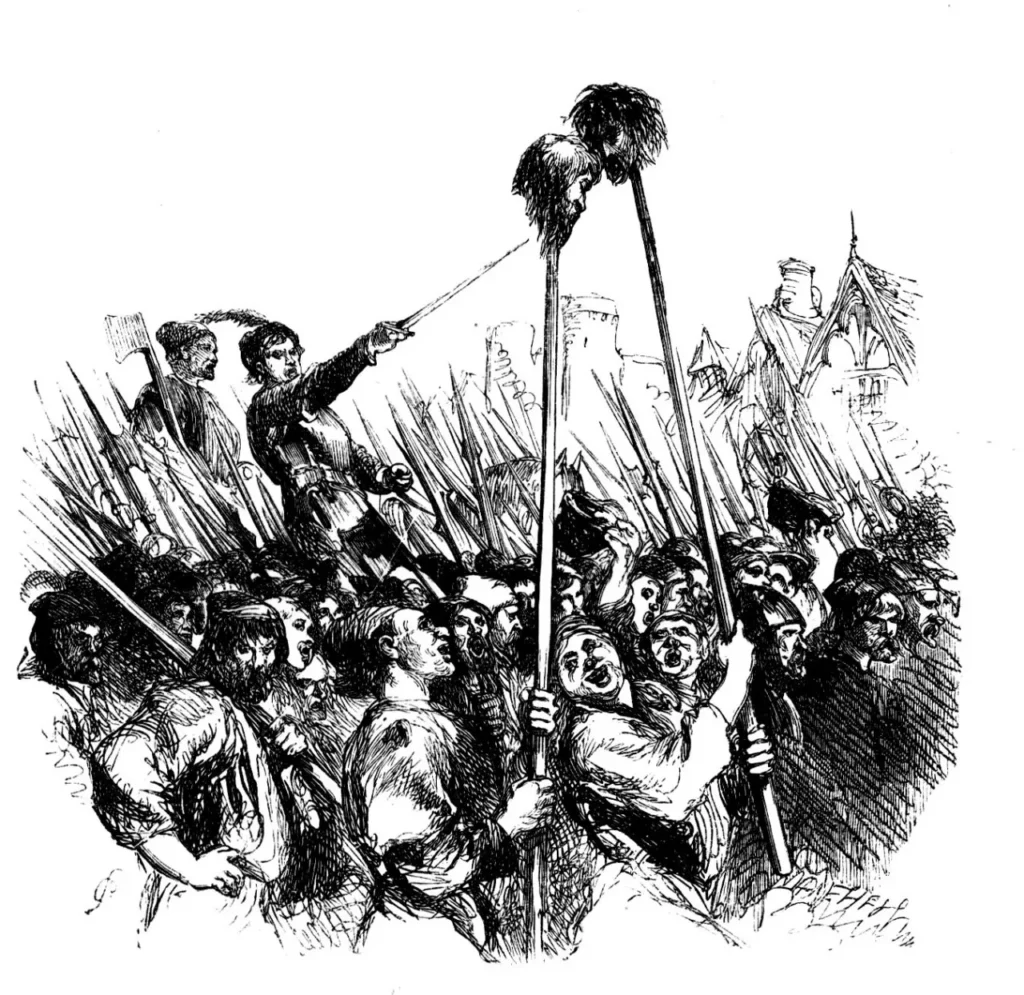
Often modern people have trouble wrapping our heads around how sure pre-modern Europeans were that human minds and their capacities (A) varied fundamentally, (B) were locked in at birth and immutable, and (C) were only very rarely rational or educable. This doesn’t mean elite education, it means any education, grasping the basics beyond I’m hungry and I want to eat that fish. Plato and Aristotle (and many transformations thereof over 2,000 years), described a human soul/mind led by three forces: the appetites, the passions, and the intellect i.e. reason. The appetites were simplest and most bodily: I’m hungry, I’m thirsty, I’m tired and want to rest, I’m bored and want entertainment, I’m horny and want sex, my arms hurt I don’t want to carry this anymore. The passions we might call mental but worldly: pride, ambition, loyalty, patriotism I want to be famous, I want to be respected, I want to be well-talked-of in the city, I want to protect my way of life, I want to have power, I want to advance the glory of the state, I want to battle evil, etc. Reason, or the intellect, was the calculating, understanding, and contemplative power, which did math, understood the universe, aspired to the spiritual and eternal (whether Justice or the Pythagorean theorem) and exercised ethical judgment, weighing goods and bads deciding the best course (Eating this whole jar of pickles would be yummy but then I’ll get a stomachache; electing this demagogue would make me rich but then he would tyrannize the state.) Both Aristotle and Plato say that different souls are dominated by different organs of the soul (i.e. either the appetites, passions, or intellect) and that only a tiny minority of human souls are dominated by the intellect, a larger minority by the passions, and practically all by the base appetites. Plato’s Republic uses an exam/aptitude system to identify these rare souls of gold (as opposed to silver = passions, bronze/iron = appetites) and make them rulers of the city, and proposes a eugenicist breeding program to produce more.
The principle that souls of gold (i.e. souls fully capable of being educated & of wise rule) are a tiny minority, and that most humans are immutably not educable from birth, was very thoroughly absorbed into European belief, and dominated it for 2,000 years. In Dante, we see the entire structure of Hell revolve around the appetites/passions/intellect distinction. Medieval epistemology, psychology, and even ideas about medicine and plants incorporated this principle, and spun elaborate explanations for how and why different souls perceived the heavenly world (Good, Justice, Providence) better than others. Eugen Weber’s powerful history, Peasants into Frenchmen: The Modernization of Rural France, 1870-1914, shows how people in the period wrote about their own French peasants in incredibly insulting, infantilizing, quasi-bestial terms, strikingly similar to the racist language we’re used to the Age of Empires using to demean non-Europeans. Anyone who hasn’t looked at period sources will struggle to believe how ferociously confident the European majority was in the thesis that the majority of people even in their own country could never understand a book, a moral quandary, or a political proposition. Keeping the rare wise elites in charge was the only barrier between order and savagery. The fact that so many people were willing to believe in the totally mythical tragedy of the commons (yes, it’s totally invented, real peasants took great care of their commons) is one relic of how certain people were for a long time (and some still are) that most people are not capable of making the kinds of prudent, sustainable judgments necessary for custodianship of a polity.
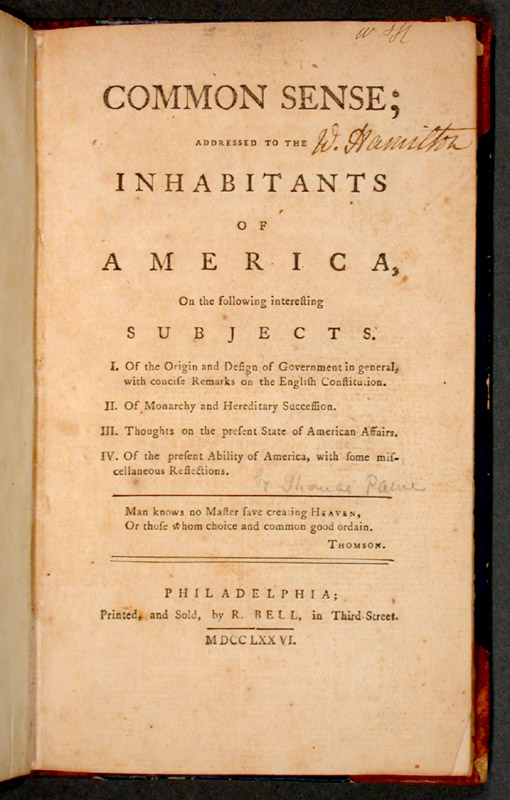
It took a lot to get even a small radical fringe by 1750 to entertain the notion that all people–or even just all men–were created equally educable. A long survey of the causes would get unwieldy, but they include (among other things) contact with indigenous cultures in the Americas and other regions which had functional governments without European-style systems, revolutions in medicine and the understanding of the sense organs which undermined old hierarchy-enforcing ideas about how cognition and sensation functioned, second-order consequences of the rags-to-riches path opened by Renaissance courts employing scholars from any background so long as they had good Latin, and Protestantism’s second-order implication that, if people didn’t need priests as intermediaries between their prayers and God, perhaps they didn’t need aristocrats as intermediaries between them and power. But by 1750 that fringe existed, and had enough momentum to implement its experiment in the new United States, which most people who were considered sensible at the time thought would quickly degenerate into chaos, because they didn’t think most people were capable of understanding the world enough to vote sensibly, draft legislation, or serve in a congress, and that the tiny wise minority would be drowned out by the majority wanting to vote for dining on the king’s tab and killing all the lawyers.
At this point, if this essay were a twitter thread, one would see the obligatory snarky self-proclaimed cynic pop up with a comment that America did degenerate into foolish populist chaos, look at the Trump voters, and I know of several Shakespeare companies that put on Henry VI with Cade as Trump. That is why it’s so important to focus on the distinction between educated and educable, and that the claim made by America’s early founders and shapers wasn’t that all people are capable of ruling wisely, but that all people are capable of becoming capable of ruling wisely. This is why those who shaped America insisted so fiercely on universal public education; they believed (we have thousands of essays, letters, and documents to this effect!) that citizens would only be capable of being wise voters and rulers if they had access to a good education. Without education, they believed, people would indeed vote for foolish things, so they had to transform their populace, from one where rural peasants were starved for education, to one where everyone was invited to Reason’s classroom. They also believed that a well-informed public was vital, thus that news and newspapers were indispensable for democracy to function, which is why the early US government subsidized the shipping of newspapers and the circulation of knowledge through things like Media Mail–here see Will Slauter’s fantastic history Who Owns the News?
Now, at one point I helped my Ph.D. adviser James Hankins with his research on the history of conservatism. We (mostly he) looked at many examples over many times, places, and regimes, and observed after innumerable case studies that a consistent defining characteristic of conservative thought over time is the belief that some people are better at ruling than others, thus that the best way to run a government and society is to put those superior people in power. Whether it’s a hereditary aristocracy, an exam-based meritocracy, an earn-the-franchise-through-military-service timocracy, or a divine right monarchy, many systems posit that some are more capable of rule than others, and that the best system will put them in power.
These days, when I cite this definition of conservatism, invariably someone brings up Frank Wilhoit’s observation that “Conservatism consists of exactly one proposition, to wit: There must be in-groups whom the law protects but does not bind, alongside out-groups whom the law binds but does not protect.” While this is a very powerful summary of trends in 21st century conservatism, useful for thinking about a lot of current politics, it isn’t broad enough when we want go back 1,000 years or more because (I know this will sound absurd) the idea that law is supposed to bind anyone is actually fairly new. In my period (Renaissance) for example, law is mainly supposed to provide an Earthly portrait of divine judgment & mercy, and everyone is supposed to break laws all the time but then get the penalties waived, so the process of transgressing, being condemned, and being pardoned or let off with a lesser sentence gives the soul an ethically therapeutic preview of the universality of sin and the hope for being let off with just Purgatory instead of Hell, and the idea of law actually binding or protecting anybody maybe goal #24 in the lawmakers’ minds, with a lot of really weird-to-us-modern ones higher on the list. But in pre-modern and modern conservatism alike, we see the shared conviction that some people are fundamentally better at ruling (or just better) than others, and that one must put the better in power.
The thesis that all people are educable is fundamentally opposed to this.
Democracy can function, says Thomas Paine (to pick a spokesman for the US founders), because human beings are fundamentally educable, and if given a good teacher, a good reading list, and some newspapers, all human beings, or at least the overwhelming majority of them, will become capable of wise judgment and self-rule. One’s civic duty is not to identify the wise minority and put them in power, but to disseminate the tools of education so the majority can become wise. This thesis is opposed to aristocracy, to oligarchy, to timocracy, even to most forms of meritocracy, since education isn’t supposed to prepare people to be sorted out by the exam but to demonstrate that human beings are so excellent that everyone can pass it.
Let’s return now to our snarky self-labeled cynic, who points at Trump voters and people who are wrong on the internet to joke that most people are fundamentally too stupid to be educated. Setting aside the fact that the engines of social media currently make fringe and foolish voices far louder than sensible ones, making them seem like a majority, America at present does not live in the world of robust public education and state-strengthened free circulation of journalism which the minds behind the experiment thought were so essential. Today’s America has seen decades of the intentional conservative-led starving and squeezing of public education, efforts to increase the disparity in education quality between public education and private or charter school education, conservative-led homeschool movements which aim to expose people to a narrow range of ideology, and also the devastation of newspapers, journalism, and a vast misinformation campaign. All this adds up to preventing many who are educable from becoming educated. Thomas Paine, and those I’m using him to represent, would recognize this as a sabotage of their system, one they would say might indeed enable Cade-style populism, which (as in Henry VI) is easy for ambitious elites to then harness to their own ends. Thus, Paine would say: of course the democracy isn’t working well if such an essential precondition is being sabotaged.
In sum, we need to talk more about the vital tie between democracy and the conviction that all people are created educable. It helps make clear how strategic the strangulation of educational resources is, and that one of the less loud but most dangerous threats to our confidence in democracy is the project to make it seem like most people can’t make sensible political judgments, reducing people’s confidence in democracy as a system by seeming to prove true conservative principle that there will always be a few who should rule and many who can’t. When I see conservative thinking start to show up in acquaintances (or Silicon Valley leaders) who consider themselves progressive but also consider themselves smart, it often begins with them feeling that most people are stupid and the world would be better off if the smart were in charge. One can often get such people to pause and reflect by bringing up the question of whether they think all people are fundamentally educable, and whether the solution isn’t to put the reins of power into genius hands but to put the Encyclopedia in everyone else’s. Information is key. Those peasants who shared commons maintained them sustainably for centuries because (as we now recognize) they were educated in the ways that mattered, they learned from families and communities to understand what they were doing, using local knowledge of commons, grazing etc. as they made choices. If one’s democratic state is the commons, people will likewise maintain it well, but not if they’re intentionally deprived of access to basic knowledge of how it works and what can harm or heal it, and drowned instead in deliberate falsehoods.
We all know we need to support education & good journalism, and combat misinformation, but revisiting the principle that all people are created educable is a good way to remember that these are not merely invaluable social goods, like sanitation or public parks. They were conceived from the start as essential components of modern democracy, in direct opposition to the many-centuries-old conservative principle that some are best to rule and others to be ruled. Enlightenment-style democracy cannot function without the conviction that all people are created educable. If we forget that, if we doubt it, if we let it shake our confidence in the experiment which didn’t turn into Jack Cade for more than two centuries (bets were not on America surviving for so long in 1776!), we risk opening the gates to the old failure mode of oligarchy rising when democracy wavers.
P.S. Donate to Wikipedia – both Diderot and Thomas Paine would smile.
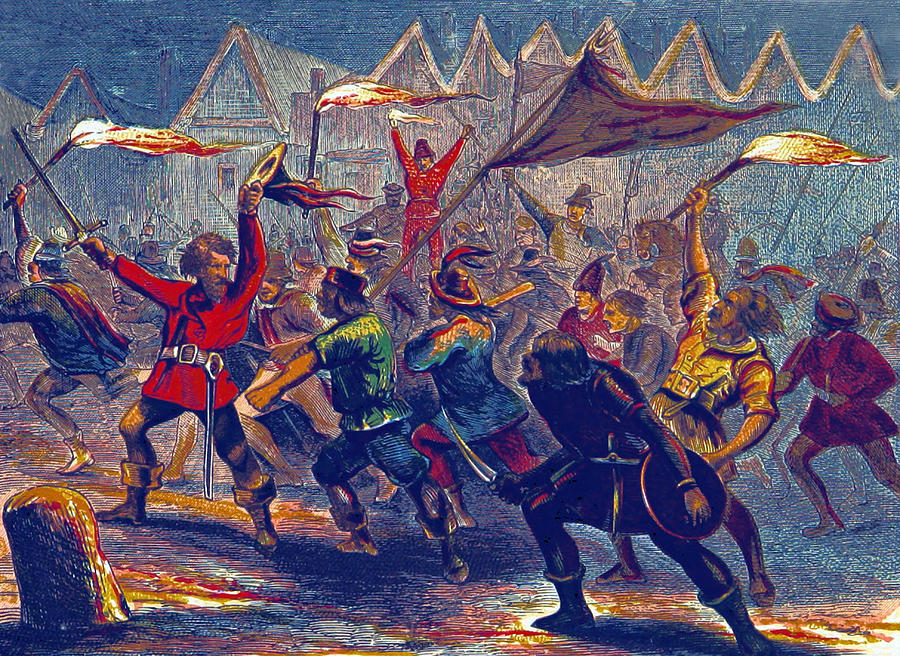
6 Responses to “All People Are Created Educable, a Vital Oft-Forgotten Tenet of Modern Democracy”
-
Thank you for this piece! A question about the tragedy of the commons: can we say that the commons handle their common resources very well as long as they live in smallish communities (because we have very good innate intuitions on how to behave in small groups), but not so well in unimaginably large communities, such as today’s cities, therefore we now need artificial laws and law enforcement to handle our resources? I.e. in certain situations the tragedy of the commons is real, in others it’s not?
Perhaps another example: yesterday I saw a stand with several types of expensive hand-made breads and no-one guarding them. Instead there was a sign: please take a bread and leave the money in the box according to the price list. Now, twenty years ago my community was much poorer and such an unguarded bread stand would not have been possible or sensible. Now that we’re all richer we can afford to care more about our reputations (someone might see us stealing a bread or the money box) and share the expensive bread responsibly, even though we live in a medium-large town. So there may be several aspects that make the tragedy of the commons more or less like to occur.
-
Thank you for that call to action – I had been dithering on the latest Jimmy Wales email
-
I would look more at the election of Andrew Jackson, which led many of the founders to despair.
-
[…] Read More […]
-
Given that no one is any better at ruling than anyone else, surely we should then stop voting for representatives and just select our rulers by sortition, right?
-
[…] For an interesting perspective on this, see “All People Are Created Educable, a Vital Oft-Forgotten Tenet of Modern Democracy” over at Ex […]

